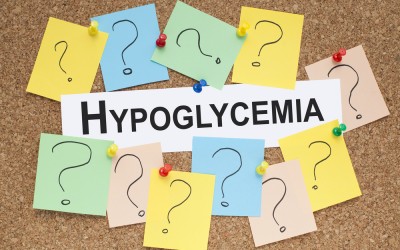Introduction
Diabetes is a daily issue that necessitates careful blood sugar regulation. Hypoglycemia unawareness is one of the issues that diabetics may suffer. This phenomenon can have serious consequences for their health and well-being. This essay will go into the world of hypoglycemia unawareness, investigating its causes, effects, and preventative techniques.
Understanding Hypoglycemia Ignorance
Hypoglycemia unawareness occurs when diabetics lose their ability to notice the symptoms of low blood sugar levels. When blood sugar levels go dangerously low, the body normally transmits signs such as shakiness, perspiration, and palpitations. However, for those who are unaware of their hypoglycemia, these warning symptoms become muffled or altogether nonexistent.
The Science Behind Hypoglycemia Unawareness
When blood sugar levels fall below the typical range, hypoglycemia occurs. To boost blood sugar, a healthy person’s body responds by producing chemicals such as adrenaline and glucagon. Long-term exposure to elevated blood sugar levels, on the other hand, can desensitize these counterregulatory responses. This desensitization, together with neurological alterations, contributes to hypoglycemia invisibility.
Factors Contributing to Hypoglycemia Unawareness
Several variables can increase the likelihood of acquiring hypoglycemia while unaware. These are some examples:
Intensive Diabetes Management
Tight management of blood sugar levels with intense insulin therapy can result in many episodes of hypoglycemia, increasing the risk of developing hypoglycemia unawareness.
Autonomic Neuropathy
Diabetes-related nerve damage can impair the body’s capacity to release hormones that detect low blood sugar, adding to a lack of awareness.
Duration of Diabetes
Because of the cumulative impact of fluctuating blood sugar levels, the longer a person has lived with diabetes, the greater the risk of developing hypoglycemia unawareness.
Read Guide about Wegovy Dosage Guide: The Best Way For Weight Loss
The Impact on Individuals
Unawareness of hypoglycemia can have major repercussions for diabetics, including:
Increased Risk of Severe Hypoglycemia
Individuals are more likely to have severe hypoglycemia without early warning signals, which can lead to unconsciousness, convulsions, and even death if not treated swiftly.
Impaired Quality of Life
Fear of unexpectedly low blood sugar levels can create anxiety and impede everyday activities, thereby influencing overall health.
Difficulty Diabetes Management
Unawareness of hypoglycemia makes it difficult to fine-tune insulin doses and properly maintain blood sugar levels.
Strategies for Prevention and Management
Managing hypoglycemia while unaware necessitates a multifaceted approach:
Continuous Glucose Monitoring
Continuous Glucose Monitors (CGMs) can provide real-time blood sugar data, assisting individuals in being attentive to their levels.
If you want to see either you or a friend qualify for a CGM, Fill out the form here.
Hypoglycemia Education
Individuals can be empowered to take action by being educated about the necessity of regular blood sugar monitoring and recognizing alternate indications of low blood sugar.
Must Read: January 2023 CGM
Adjusting Treatment Plans
To reduce the frequency of hypoglycemia and raise awareness, healthcare practitioners can vary insulin regimens and adjust objectives.
Conclusion
Individuals with diabetes who are unaware of hypoglycemia face a major risk. The inability to detect low blood sugar signs might result in major health concerns and a lower quality of life. Those plagued with hypoglycemia can recover control of their diabetes management and live healthier lives by adopting current technologies, promoting awareness, and partnering with healthcare experts.
FAQs
Q1: Can hypoglycemia unawareness occur suddenly?
A1: Yes, depending on the specific conditions, it might grow gradually over time or suddenly.
Q2: Is hypoglycemia-induced blindness reversible?
A2: Some degree of improvement is attainable with adequate management and lifestyle adjustments, but total reversal is not always possible.
Q3: How might CGMs aid in the detection of hypoglycemia?
A3: CGMs provide real-time data, allowing individuals to continuously watch their blood sugar levels and receive alarms when they go too low.
Q4: Are there any drugs specifically designed to treat hypoglycemic unawareness?
A4: There are currently no drugs licensed solely for the treatment of hypoglycemia unawareness, however, diabetes control can help alleviate the issue.


